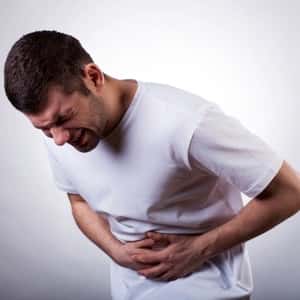
Here we go again. America’s favorite heartburn drugs are in trouble because of a new study published in the journal JAMA Internal Medicine (online, January 11, 2016). The research suggests that regular use of proton pump inhibitors (PPI) “is associated with a higher risk of incident CKD [chronic kidney disease].”
This new investigation adds to the growing list of serious complications associated with drugs like dexlansoprazole (Dexilant), esomeprazole (Nexium), lansoprazole (Prevacid), omeprazole (Prilosec), rabeprazole (Aciphex) and pantoprazole (Protonix).
Chronic Kidney Disease [CKD] is a BIG Deal!
Most us of take our kidneys for granted until they stop functioning normally. When that happens there is an increased risk for cardiovascular complications and premature death. When your kidneys begin to fail, toxins build up in the body. Blood pressure can rise and anemia may occur; nerve damage and weakened bones may also result.
Symptoms of chronic kidney disease include fatigue, loss of energy and fluid retention leading to swelling of feet, ankles, arms and legs. Some people can also experience puffiness around the eyes, difficulty concentrating, frequent nighttime urination, loss of appetite, sleeping difficulties and nighttime muscle cramps along with itchy, dry skin. A sudden increase in potassium levels can signal worsening of the condition.
Causes of Kidney Disease:
Classic contributors to kidney disease include hypertension, poorly controlled diabetes, a family history of CKD or a genetic background that is at higher risk such as Pacific islanders, Hispanic Americans, African Americans or First Nations people (American Indians).
Researchers note that there are increasing numbers of people suffering from chronic kidney disease. It is estimated that 13.6% of American adults now suffer from CKD. That translates into at least 26 million people with the disease plus millions more at risk. It has been noted that the numbers are going up faster than might be anticipated from traditional risk factors like diabetes and hypertension.
PPIs and Adverse Drug Reactions:
Powerful PPI heartburn drugs are among the most popular pills in the pharmacy. It is estimated that as many as 15 to 20 million people in the U.S. take a PPI every day.
The FDA has considered these acid-suppressing medications so safe that it has allowed over-the-counter sale of Prevacid 24HR, Prilosec OTC and Nexium24HR. And doctors continue to prescribe these drugs in large numbers. Many physicians also consider them super safe.
Over the last several years research has begun to reveal unexpected hazards from PPIs. Such drugs have been linked to an increased risk of pneumonia, C. diff (Clostridium difficile) infections and severe diarrhea. Other possible complications include fractures, heart attacks, malabsorption of magnesium, iron and vitamin B12 as well as acute kidney injury. In addition, there is increasing awareness that regular use of powerful acid-suppressing drugs can upset the delicate balance of bacterial living in the intestinal tract.
The Latest Research on PPIs and Chronic Kidney Disease:
The new data reported in JAMA Internal Medicine add urgency to a reevaluation of the safety of long-term use of these powerful heartburn drugs. The investigators evaluated medical records from different populations of patients. One group was from a study called ARIC (Atherosclerosis Risk in Communities). This involved 10,482 subjects.
People taking PPIs were at a 45% increased relative risk of being diagnosed with chronic kidney disease. The absolute risk for developing chronic kidney disease in users of PPIs over 10 years was estimated to be 11.8% compared to 8.5% if they had not used such drugs.
The other group was comprised of 248,751 patients from the Geisinger Health System located in Pennsylvania. The estimated 10-year absolute risk of CKD in users of proton pump inhibitors was 15.6% compared to 13.9% in nonusers. The relative risk increase was 46% for people who relied on twice daily use of a PPI.
Conclusions:
The authors of this study note that:
“In summary, we found that PPI use is an independent risk factor for CKD and AKI [acute kidney injury], but H2 antagonist use is not.”
We find this an important observation because H2 antagonists also suppress stomach acid, but not to the degree of proton pump inhibitors. That suggests that people with heartburn are not intrinsically vulnerable to kidney damage since weaker drugs did not raise their risk of kidney damage.
A word of caution is always appropriate. For one thing, this kind of observational research can never prove cause and effect. Although intriguing, it can merely suggest an association. The authors point out that:
“Previous studies have also identified an association between PPI use and AKI, most specifically in the form of acute interstitial nephritis. Our study adds to the existing literature by describing an association between PPI use and incident CKD. We note that our study is observational and does not provide evidence of causality. However, a causal relationship between PPI use and CKD could have a considerable public health effect given the widespread extent of use. More than 15 million Americans used prescription PPIs in 2013, costing more than $10 billion.”
The Bottom Line on These Heartburn Drugs:
We think the growing evidence that proton pump inhibitors are linked to a number of serious side effects requires that the FDA reevaluate the over-the-counter use of such medications. Doctors also need to rethink the safety of these drugs. Once people start taking PPIs for more than several weeks it can be very hard to stop, as we point out in this article. Rebound hyperacidity can cause unbearable heartburn.
Learn way more about heartburn drugs and other ways to treat indigestion in our book Best Choices from The People’s Pharmacy.
Please vote on this article at the top of the page and share your own thoughts about PPIs in the comment section below.

